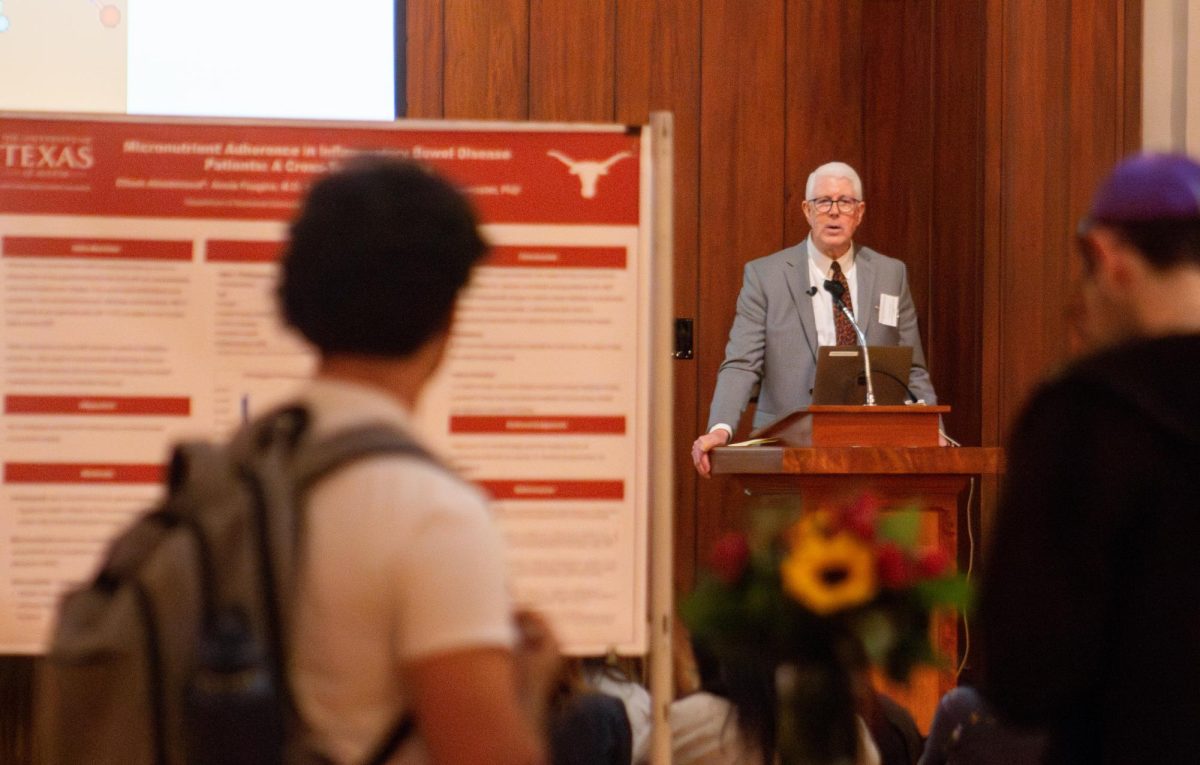Rows of guests filled the Union’s Shirley Bird Perry Ballroom on Feb. 22 to learn about the link between nutrition and cancer’s development and progression.
Held by the Department of Nutritional Sciences, the University welcomed Stephen Hursting, a professor from the Department of Nutrition at the University of North Carolina, Chapel Hill, to give the 2024 Jean Andrews centennial lecture “Food for Thought.” Hursting’s lecture examined how an individual’s diet and activity level influence their likelihood of developing cancer.
Hursting emphasized the relationship between specific dietary factors, including micronutrients and phytochemicals, and cancer. He said maintaining diets rich in whole grains and vegetables, remaining active, and limiting consumption of red meat, processed foods, sugar, fast food and alcohol are crucial in preventing cancers linked to diet and obesity
“The number two killer for us, both men and women, (are) colon, pancreatic (and) liver (cancer). … Obesity is pushing these cancers forward,” Hursting said.
Referencing past research of his own and by fellow researchers, Hursting said data shows combinations of medications and surgical interventions, along with diet modification, seem to work best.
“Calorie restriction works really well in some places,” Hursting said. “It’s low cost, it’s effective. It’s accessible if people can do this, but very few people maintain that low-calorie intake for long periods.”
Hursting’s lecture ended with a panel joined by Lorie Harper, a chief in the department of women’s health at Dell Medical School, William Matsui, the vice dean of research at Dell Medical School and Jaimie Davis, the associate chair of research in the Department of Nutritional Sciences.
While mentioning her work, Davis discussed the topic of obesity as a more significant issue involving class. She said the cost of food, limited access and availability to healthy foods and education about nutrition among lower-income populations exacerbate obesity rates.
“To address obesity, we need to change the environment, access and availability of healthy foods and access to activities in the schools and the communities,” Davis said. “That involves policy in the state.”
Nutrition junior Harshini Addepalle said she found interest in learning about the intricacies of diet and how the foods people consume daily usually contain carcinogens.
“This information will keep me mindful about my diet and what foods are in the market and what I should trust, not trust, like food labels and everything like that,” Addepalle said. “It’ll keep me mindful going forward about how my nutrition right now can impact my life later.”














